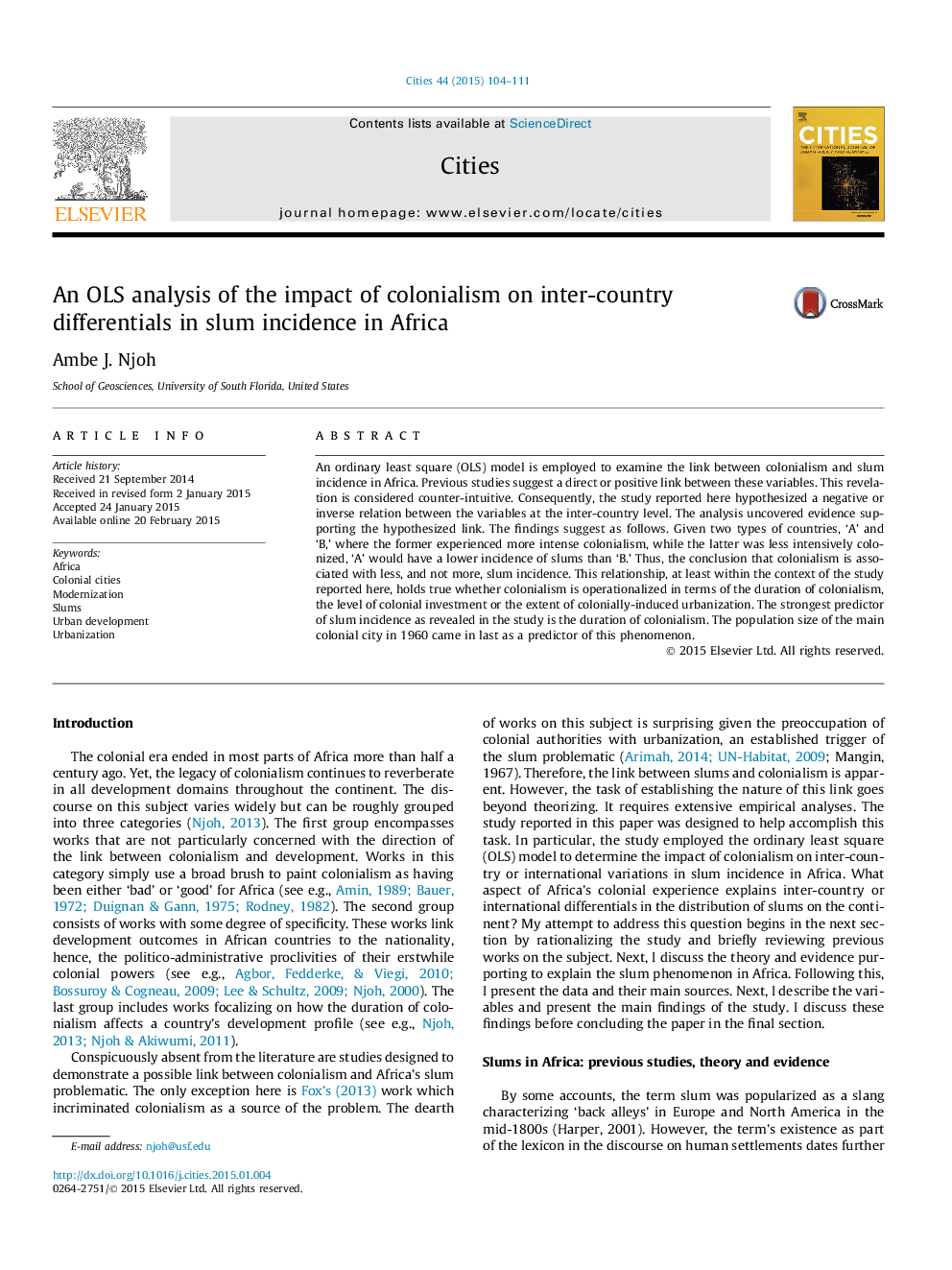| Article ID | Journal | Published Year | Pages | File Type |
|---|---|---|---|---|
| 1008318 | Cities | 2015 | 8 Pages |
•An ordinary least square (OLS) model is employed to examine the link between colonialism and slum incidence in Africa.•A negative or inverse relation between the variables at the inter-country level is hypothesized.•The analysis uncovered evidence supporting the hypothesized link.•Thus, countries that experienced more intense colonialism are found to have less slum incidence than those than experienced less.
An ordinary least square (OLS) model is employed to examine the link between colonialism and slum incidence in Africa. Previous studies suggest a direct or positive link between these variables. This revelation is considered counter-intuitive. Consequently, the study reported here hypothesized a negative or inverse relation between the variables at the inter-country level. The analysis uncovered evidence supporting the hypothesized link. The findings suggest as follows. Given two types of countries, ‘A’ and ‘B,’ where the former experienced more intense colonialism, while the latter was less intensively colonized, ‘A’ would have a lower incidence of slums than ‘B.’ Thus, the conclusion that colonialism is associated with less, and not more, slum incidence. This relationship, at least within the context of the study reported here, holds true whether colonialism is operationalized in terms of the duration of colonialism, the level of colonial investment or the extent of colonially-induced urbanization. The strongest predictor of slum incidence as revealed in the study is the duration of colonialism. The population size of the main colonial city in 1960 came in last as a predictor of this phenomenon.
